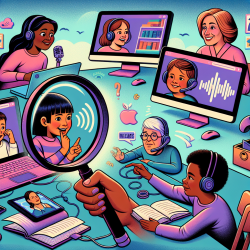The COVID-19 pandemic has presented unprecedented challenges for therapists, significantly impacting their professional and personal lives. A recent study, titled
What Do Therapist Defense Mechanisms Have to Do With Their Experience of Professional Self-Doubt and Vicarious Trauma During the COVID-19 Pandemic?, offers critical insights into how therapists' defense mechanisms can affect their experiences of professional self-doubt and vicarious trauma. This blog explores the key findings of the study and provides actionable strategies for therapists to enhance their resilience and effectiveness during these trying times.
Key Findings
The study, conducted through two separate online surveys during the early days and three months into the pandemic, utilized the Defense Style Questionnaire-40 (DSQ-40) and the Defense Mechanisms Rating Scale-Self Report-30 (DMRS-SR-30) to assess therapists' defense mechanisms. The key findings are as follows:
- Therapists reported higher levels of mature defense mechanisms and lower levels of immature defense mechanisms compared to community and clinical populations.
- Lower levels of mature defense mechanisms and higher levels of neurotic and immature defense mechanisms were associated with higher levels of vicarious trauma and professional self-doubt.
- Therapists who reported higher levels of mature defense mechanisms at the three-month follow-up showed less vicarious trauma and professional self-doubt, even after controlling for baseline levels of these stressors.
Implications for Practice
The findings underscore the importance of adaptive defense mechanisms in mitigating professional stress and enhancing resilience. Here are some strategies for therapists to improve their coping mechanisms and reduce professional self-doubt and vicarious trauma:
1. Awareness and Reflection
Therapists should regularly reflect on their own defense mechanisms and recognize their patterns of coping with stress. This self-awareness can help in identifying less adaptive mechanisms and replacing them with more mature defenses.
2. Training and Supervision
Incorporating training on adaptive defense mechanisms into graduate programs and supervision sessions can be beneficial. Such training can help therapists develop more effective coping strategies, thereby reducing professional self-doubt and vicarious trauma.
3. Self-Care and Personal Therapy
Engaging in self-care practices and seeking personal therapy can enhance therapists' resilience. These practices can help therapists manage the stress and trauma they encounter during their sessions, especially in the context of a global pandemic.
4. Professional Support
Providing professional support, such as peer supervision and consultation, can help therapists navigate the challenges of transitioning to online therapy. This support can boost their confidence and reduce feelings of professional self-doubt.
Future Directions
While the study provides valuable insights, it also highlights the need for further research. Future studies should aim to replicate these findings outside the pandemic context to understand the generalizability of these results. Additionally, longitudinal studies that assess changes in defense mechanisms over time can provide a more comprehensive understanding of how therapists adapt to professional stressors.To read the original research paper, please follow this link:
What Do Therapist Defense Mechanisms Have to Do With Their Experience of Professional Self-Doubt and Vicarious Trauma During the COVID-19 Pandemic? 









